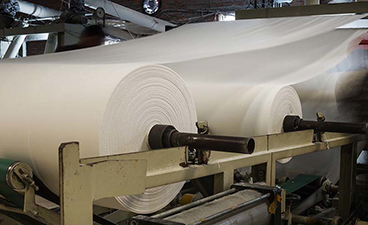
Shri Ramaswamy, PhD, wants to do for manufacturing processes what microwave ovens did for meal prep: improve speed and efficiency. Only instead of heating food, he’s drying paper, board and other products.
His team in the Department of Bioproducts and Biosystems Engineering at the University of Minnesota is working to make energy-intensive manufacturing processes more efficient, starting with pulp and paper production. By substituting fossil-based energy with renewable energy, they aim to decrease the carbon footprint of manufacturing processes.
Paper is a biomaterial, which means it readily interacts with water and the water is difficult to remove, requiring a significant amount of energy. The manufacturing process begins with a slurry of natural fibers that is diluted into pulp, then mechanically dewatered and pressed. That material is then dried and made into finished paper products. Conventional drying methods use slow, inefficient technologies and often, fossil-based energy. Continue to the full article published on CFANS.